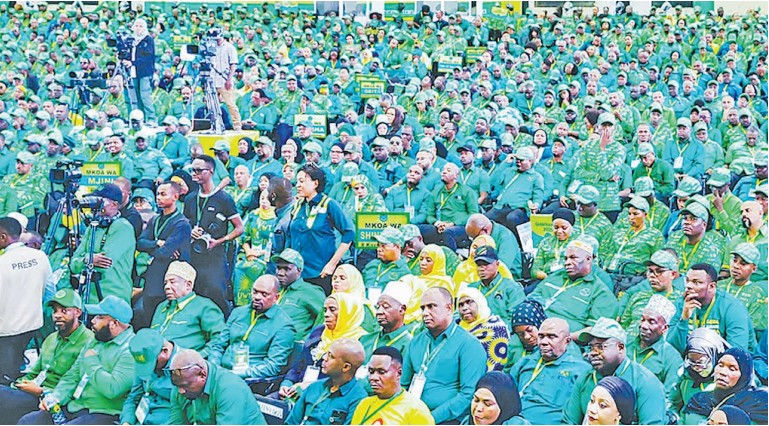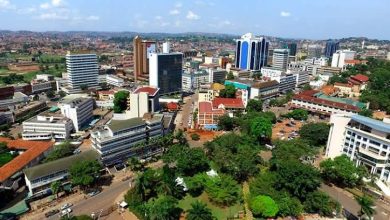How Tanzania benefits from economic diplomacy

WHEN Tanzanians talk politics, there is one name that echoes louder than vuvuzelas in a stadium: Chama Cha Mapinduzi, or simply CCM.
Born in 1977 out of the merger of Tanganyika African National Union (TANU) and Afro-Shirazi Party (ASP) of Zanzibar like political conjoined twins with a vision-CCM has not only ruled Tanzania longer than some countries have kept the same flag, but it has also evolved from grassroots socialism to high-level economic diplomacy with impressive agility.
Tanzania, under the stewardship of the ruling Chama Cha Mapinduzi (CCM) party, builds bridges. Going by Chandler Good Government Index (CGGI) that is an annual, non-partisan tool designed to assess and benchmark national governments’ effectiveness and capabilities, Tanzania leads in the African continent as a result of stability (being peaceful), mediation in conflicts DRC, Liberation struggle for neighbouring countries to get independence and advocating strong principles of non-alignment—promoting independence, anti-colonialism and cooperation among developing countries.
That put aside, CCM’s economic diplomacy has taken on a robust, investorfriendly face, positioning Tanzania as both a reliable partner and an emerging economic heavyweight in East Africa.
Actually, if diplomacy were a game of chess, Tanzania has just moved its bishops into better positions. Worth remembering with a trace is that the government has opened two new embassies one in Vienna (as Permanent Representation to the United Nations) and another in Jakarta, Indonesia. It didn’t stop there.
ALSO READ: Tanzania’s aviation growth enhanced by skills involvement
Two consulates general were also inaugurated in Lubumbashi (Democratic Republic of Congo) and Guangzhou (China), pushing Tanzania’s global diplomatic footprint to 45 embassies and five consulates general. But this was not just about pinning flags on global maps; it is about pulling infrastructure funding out of conversations.
These new missions have played key roles in securing support for high-impact infrastructure projects back home. Case in point?
Funding secured for the Gerezani Bridge in Dar es Salaam, the Malindi Fish Market in Zanzibar and the expansion of Abeid Amani Karume International Airport (Terminal 3) are all diplomatic dividends now under construction. Economic diplomacy under CCM has not just been about acquiring new funds; it has also been about smartly restructuring existing ones.
A standout example? Tanzania secured debt relief from Iran and that is approximately 138 million US dollars of oil-related debt was forgiven, with the remaining 77.7 million US dollars to be repaid interest-free over five years. That is diplomacy with a calculator and a conscience.
Think of this also, the World Bank chipped in 72 million US dollars to finance the Lusahunga–Rusumo/ Kayonza–Kigali Road, a 162-km artery expected to supercharge East African regional trade. This infrastructure has truly become the new diplomacy and none more telling than the Rusumo Falls Hydroelectric Project, a trilateral initiative between Tanzania, Rwanda and Burundi.
The 80 MW output is split equally between the three nations and a quiet but powerful testament to what shared regional vision can achieve.
The African Development Bank followed suit, releasing 47.4 million US dollars for the Manyovu/Mugina One Stop Border Post (OSBP) on the Burundi border due to be completed by May 2026. It is a mouthful of acronyms but a full plate of opportunity. The tourism turnaround: From ‘Royal Tour’ to royal revenue If diplomacy had a travel show, President Samia Suluhu Hassan would be its charismatic host.
Through “The Royal Tour,” Tanzania did not just show off its savannahs and spice islands; it sold a narrative of stability, growth and untapped opportunity. Tourism numbers prove the charm offensive worked. From 1.7 million tourists in 2021, Tanzania’s arrivals skyrocketed to 5.36 million in 2024. More tourists mean more foreign currency, more employment and better hospitality infrastructure—essential pillars of any modern economy.
ALSO READ: LNG blessings and its ramifications in agriculture
Trade performance joined the same trajectory. Exports rose by 21 per cent, from 6.37 billion US dollars in 2020 to 7.70 billion US dollars in 2023. Even with global currency uncertainties, Tanzania maintained a positive trade balance of 636.5 million US dollars within the East African Community in 2024.
A modest diplomatic swagger is wellearned. Behind every diplomatic handshake is a room full of eager businesspeople and Tanzania’s private sector has not missed the memo. The Tanzania Chamber of Commerce, Industry and Agriculture (TCCIA) has been instrumental in aligning CCM’s economic diplomacy with the needs of Tanzanian businesses.
Again, TCCIA-led missions to Oman, Italy and Saudi Arabia spotlighted Tanzania’s renewable energy potential and created trade bridges even before the construction crews arrive. Agreements like the Memorandum of Understanding with the Saudi Chambers of Commerce are ensuring Tanzanian goods don’t just reach foreign markets, but also get priority access.
Expounding, by then a significant high-level delegation led by former Foreign Affairs Minister January Makamba and TCCIA Executive Director Vincent Minja toured Vietnam and the UAE, marketing everything from Tanzanian avocados to rare earth minerals.
The outcome? Trade and investment flowed more than doubled, while tourist arrivals topped 2.2 million by early 2025. Clearly, economic diplomacy is no longer just about politics; it’s about product placement.
Mega-Projects and mega-returns
You can’t discuss economic diplomacy without mentioning the East African Crude Oil Pipeline (EACOP)—a 1,443-kilometre joint venture that marks Tanzania’s most ambitious energy project yet.
The Host Government Agreement signed in 2022 officially brought the project into the national ledger. Meanwhile, President Samia’s visits to Brussels and Abu Dhabi brought in a flood of funding. From the Euro 425 million Global Gateway Investment Package to France’s Euro 178 million in concessional loans for Dar’s Bus Rapid Transit (BRT) system, Tanzania is riding a multi-billion-dollar infrastructure wave.
The UAE engagements alone yielded 36 memoranda of understanding worth 7.49 billion US dollars, expected to create over 200,000 jobs across various sectors, including energy, tech, agriculture and tourism. Meanwhile, Egypt’s Elsewedy Development Ltd committed 3 billion US dollars for an industrial park in Kigamboni, raising the stakes—and the skyline.
CCM’s economic diplomacy has not been limited to state functions; the party machinery itself has become an actor on the global stage. In a rare blend of ideology and industry, by then CCM Secretary-General Dr Emmanuel Nchimbi met with global counterparts to seal economic deals beyond bureaucratic corridors.
Shedding light on this Dr Nchimbi, actively engaged in international diplomacy to foster economic collaboration beyond traditional governmental channels. Notably, on September 19, 2024 in Dar es Salaam, he held separate meetings with ambassadors from Brazil and India, as well as the Head of the Foreign Affairs Department of Mozambique’s ruling party FRELIMO and the Resident Director of the Friedrich Ebert Stiftung (FES) in Tanzania.
During these discussions, Dr Nchimbi emphasised the importance of strengthening diplomatic relations to enhance bilateral cooperation globally and through various international platforms. He highlighted that one of the key priorities in the CCM manifesto is to enhance international relations, particularly through economic diplomacy.
Furthermore, on January 31, 2025, Dr Nchimbi participated in the opening of the second congress of Ethiopia’s ruling Prosperity Party in Addis Ababa.
In his speech, he underscored the necessity of collaboration between Ethiopia and Tanzania to overcome global challenges such as climate change and security threats. He conveyed Tanzania’s solidarity with the Prosperity Party, reinforcing the friendship and collaboration between the two parties and their nations.
These engagements reflect CCM’s commitment to advancing economic diplomacy and fostering international partnerships to address global challenges and promote mutual development. In another location in South Korea, Tanzania secured a 2.5 billion US dollars concessional loan portfolio focused on education, health and infrastructure.
Among the key highlights: the 156.5 million US dollars Bagamoyo Fishing Port and mining collaborations targeting nickel and lithium as critical minerals in the global energy transition. In March 2025, CCM’s National Executive Committee visited Beijing, where discussions with the Chinese Communist Party (CPC) extended beyond typical pleasantries.
The focus? Partystate governance training, cadre exchanges and strategic alignment in public sector reform. It’s governance diplomacy—down to the syllabus.
Back in Africa, CCM engaged with Norwegian and UK envoys, pushing cooperation in agriculture, climate resilience, energy and social development. Unlike in the past, where foreign visits were often labelled “courtesy calls,” these meetings now yield concrete results like investments, job creation and tech transfers.





